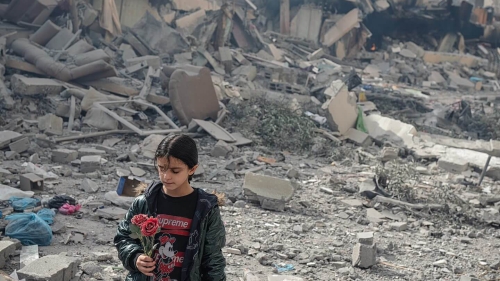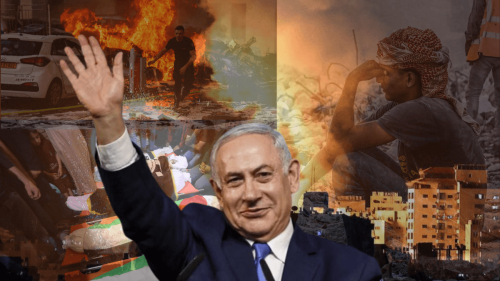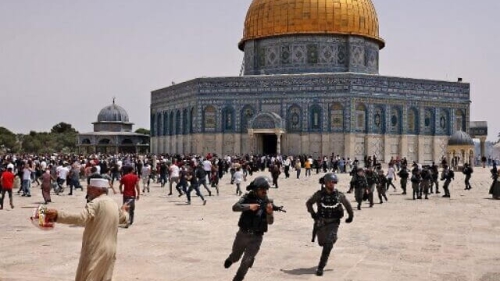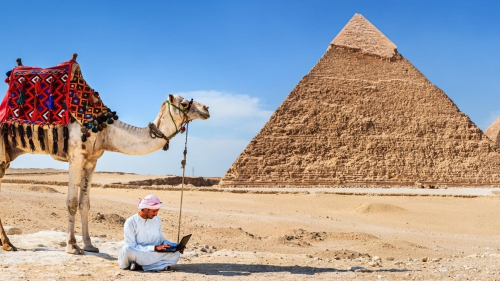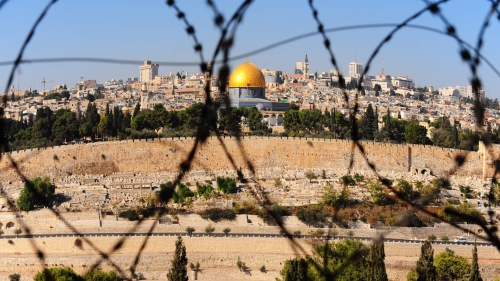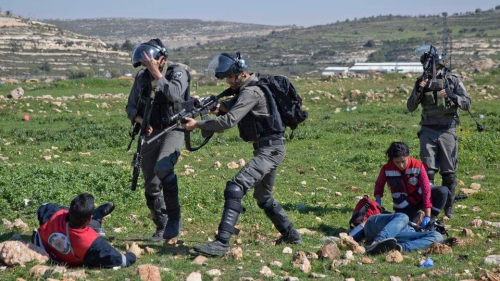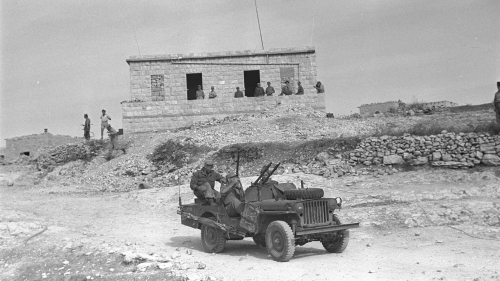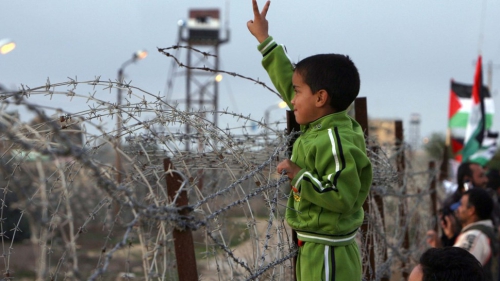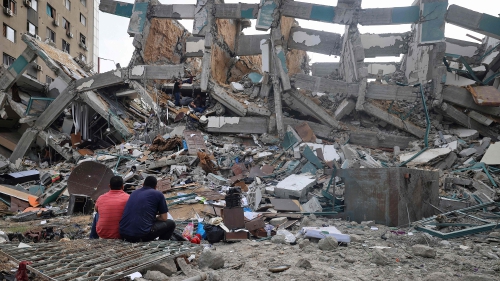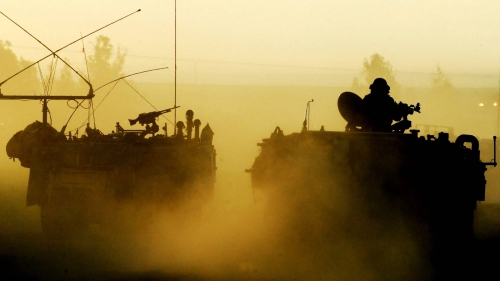A Vote For Barak Is a Vote for Murder and Racism
Thousands of "Israeli Arabs" marched in Nazareth over the past several days protesting any participation by fellow Arabs in Israel's coming elections. Their message echoed in the streets of a city that was itself a stage for bloody violence and the killing of Palestinians. "No to the legitimization of Israel's killing and racism," they chanted.
Many Palestinians see that backing Israeli Labor Party candidate Ehud Barak is an acknowledgement of his iron fist policy, which has inflicted heavy losses on the Palestinians over the last three months.
The Palestinians no longer maintain any degree of faith in the Israeli government, leaders or policies. Such a loss of faith is demonstrated daily through the continuation of the intifada. The Palestinian leadership however, to the surprise of its own population, is apparently once more falling into the Israeli elections trap.
High-level talks are resuming, some openly and perhaps others in secret, in the Gaza strip, at the Erez checkpoint bordering Israel and Gaza, and elsewhere. Top Palestinian officials such as PA senior negotiators Yasser Abed Rabbo and Saeb Erekat held several rounds of intensive talks in recent weeks with Israeli officials, spearheaded by Foreign Minster Shlomo Ben-Ami.
Israeli and Palestinian decision-makers were fully aware that the few remaining days in President Bill Clinton's term in office would never be enough for a major breakthrough in their ongoing quest for a peace agreement. Yet they are now aggressively seeking an agreement while keeping in mind another deadline, Feb. 6, the date set for Israel's elections.
Barak is worried that his right-wing rival Ariel Sharon's victory is imminent if a breakthrough in the peace talks with the Palestinians doesn't precede the election date.
While one can understand the eagerness of Barak to secure a deal with the Palestinians, considering the effect such a deal could have on the elections, the Palestinian leadership's eagerness is puzzling.
Of course, there is the fear that a Sharon victory could mean the end of the so-called peace process. Moreover, there is the fear that an old enemy, who was associated with the bloody massacres of Palestinians, might lead to an increase in Israel's brutality and the further radicalization of its policies toward Palestinians.
But such fears seem to be a poor justification for normalizing relations with Barak, a perpetrator of war crimes against the Palestinians. Barak is a man with a very discouraging record. His heroic reputation among many Israelis derives from his leading role in Israel's wars against Arab states, mainly in Lebanon.
But the hero and conqueror, miserably failed as a peacemaker. While upholding the banner of Israel's security, Barak refused to recognize most major internationally recognized demands upheld up by Palestinians. The Israeli prime minister entirely dismissed the right of return and refused to give meaningful territorial sovereignty that would constitute a foundation for a future Palestinian state.
Furthermore, Israeli settlement activities in his era increased like never before. In the first nine months of the year 2000, over 13,000 new Jewish settlers moved to illegally reside in the Occupied Territories. The size and number of settlements tripled under Barak after he facilitated massive funds to be used in the construction of new settlements and in the expansion of existing settlements on Palestinian land.
Even the US media perpetuated him as a concession maker, rather than an international law-breaker. Barak's agreement to hand over 95 percent of the West Bank to the PA didn't include large parts of the West Bank that were annexed by Israel throughout the years and were later called "greater Jerusalem". The ever-expanding city of Jerusalem has thus far swallowed nearly 45 percent of the original size of the Occupied Territories. In addition, he has designated a significant chunk of land to be used as neutral areas.
Sharon kicked off his election campaign by spelling out his "red lines" for peace making. Interestingly, these red lines, which includes no right of return for millions of Palestinian refugees, a unified Jerusalem as the capital of Israel and Israeli control of military zones in the West Bank, resemble earlier pledges made by Barak during his campaign against Netanyahu.
And since his inauguration, Barak has held tightly and faithfully to his red lines. The only "concession" made by Barak was to allow PA control over a few Arab neighborhoods in Jerusalem and to limit control over Muslim places of worship. However, Barak's gesture remained symbolic, since the Israeli withdrawal was aimed at surrounding Palestinians in the city by keeping massive settlements in place, thereby continuing control over Palestinian movement within and outside the potential capital.
Coming to an agreement with Barak was a regrettable mistake. Arafat desperately settled on an Israeli interpretation of a just peace agreement. And the PA, which understandably is concerned over future of the peace process, is indeed legitimizing Israeli killing and racism.
As far as the Oslo accord is concerned, all parties seem to agree on its worthlessness and limited future. The deadly bombardment of Palestinian towns and villages left no room for doubt that Barak's government is not interested in the language of peace, be it Oslo-style or otherwise.
Although the PA leadership insists on referring to Oslo as a viable option for peace, the thousands of Palestinian mourners who routinely accompany their new martyrs to nearby graveyards, affirm, time and again, that Oslo has tragically perished.
__________________________________
Ramzy Baroud is free-lance writer living in Seattle, Washington and a regular contributor to iviews.com.






